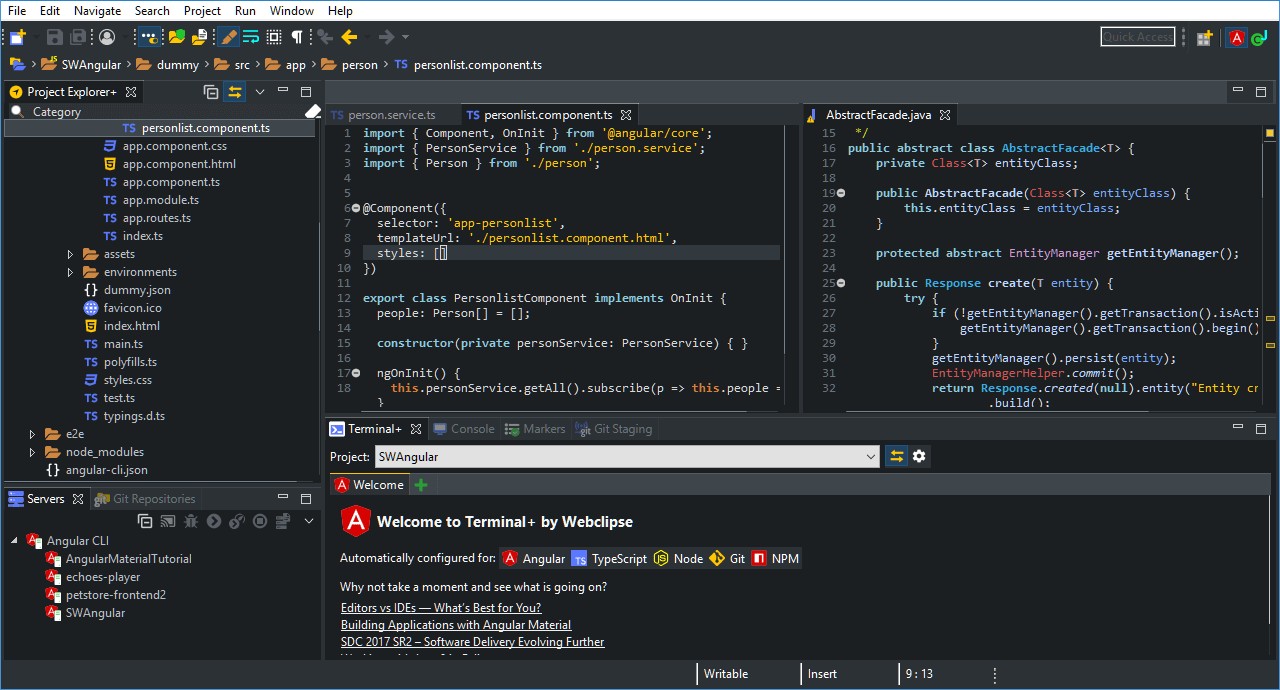Empowering Developers with a Robust Open-Source Platform
In the fast-paced world of software development, having a reliable and extensible development environment is crucial. Eclipse IDE, a long-standing favorite among developers, has proven itself to be a powerful, flexible, and highly customizable platform that supports a wide range of programming languages and development use cases. From individual programmers to enterprise teams, Eclipse continues to be a cornerstone tool in the developer's toolkit.

A Brief History of Eclipse
Eclipse was first released in 2001 by IBM as a Java-based IDE, and it quickly evolved into an open-source project under the stewardship of the Eclipse Foundation. Over the years, it has transformed from a Java-centric IDE into a full-fledged development platform that supports a vast ecosystem of plugins and tools. Today, Eclipse is more than just an IDE—it is a development framework that powers thousands of applications and tools across the software industry.
Core Features and Capabilities
1. Language Support
Although Eclipse is best known for Java development, it supports a wide array of programming languages through plugins, including:
- C/C++ via Eclipse CDT (C/C++ Development Tooling)
- Python via PyDev
- PHP via PDT (PHP Development Tools)
- JavaScript, HTML, and CSS for web development
- Support for additional languages like Kotlin, Scala, and Rust is available through community-contributed extensions.
2. Modular and Extensible Architecture
One of Eclipse’s strongest advantages is its modular architecture based on the OSGi framework. Developers can customize their environment by adding only the plugins they need, keeping the IDE lightweight and purpose-built. This modularity has also encouraged third-party toolmakers to build on Eclipse, leading to the creation of many specialized IDEs such as Eclipse for Java EE Developers, Eclipse IDE for C/C++ Developers, and Eclipse for Embedded Systems.
3. Comprehensive Development Tools
Eclipse offers a rich set of tools out of the box, including:
- Code editors with syntax highlighting, auto-completion, and refactoring
- Powerful debuggers
- JUnit integration for test-driven development
- Version control integration with Git, SVN, and more
- Maven and Gradle support for project build automation
- Task management with Mylyn for integrating bug tracking systems like JIRA and Bugzilla
4. Cross-Platform Compatibility
Eclipse runs on all major operating systems—Windows, macOS, and Linux. Its cross-platform nature and consistent user experience make it ideal for teams working across different environments.
The Eclipse Ecosystem
The Eclipse ecosystem extends far beyond the IDE itself. It includes a wide range of complementary projects, such as:
- Eclipse RCP (Rich Client Platform): A platform for building general-purpose applications, not just development tools.
- Eclipse Che: A Kubernetes-native cloud IDE optimized for team collaboration and DevOps workflows.
- Eclipse Theia: A modern, browser-based IDE framework designed to run on desktop and cloud.
- Eclipse MicroProfile: A set of open APIs and tools tailored for building microservices-based applications in enterprise Java.
This thriving ecosystem is a testament to the community-driven nature of Eclipse and its importance in both industry and academia.
Advantages of Using Eclipse IDE
- Open-source and free to use: There are no licensing fees, making it ideal for both hobbyists and enterprises.
- Highly customizable: Through its plugin architecture, developers can tailor the IDE to suit virtually any project type.
- Strong community support: With decades of usage and a global developer base, help and resources are readily available.
- Enterprise-ready: Eclipse supports complex project structures, continuous integration systems, and sophisticated debugging tools, all of which are essential in enterprise environments.
Challenges and Considerations
Despite its many strengths, Eclipse is not without challenges:
- Performance: Eclipse can feel sluggish, especially on startup or with large projects, compared to more modern IDEs like IntelliJ IDEA or Visual Studio Code.
- User Interface: Some users find the UI to be dated or less intuitive, particularly when compared to newer, more minimalist IDEs.
- Plugin Compatibility: With thousands of plugins available, occasional conflicts or instability may occur, especially when integrating third-party tools.
However, many of these issues can be mitigated through careful setup and regular maintenance of the IDE environment.

Conclusion
Eclipse IDE remains a powerful and adaptable development environment that has stood the test of time. Its open-source nature, rich plugin ecosystem, and robust feature set make it a valuable tool for a wide variety of development tasks. Whether you are a student learning Java, a systems programmer working in C++, or an enterprise developer building cloud-native microservices, Eclipse has something to offer.
As the software development landscape continues to evolve, Eclipse is evolving too—adapting to the cloud, embracing modern languages, and powering next-generation tools. For developers seeking a mature, community-driven IDE with deep functionality and broad extensibility, Eclipse remains a compelling choice.
